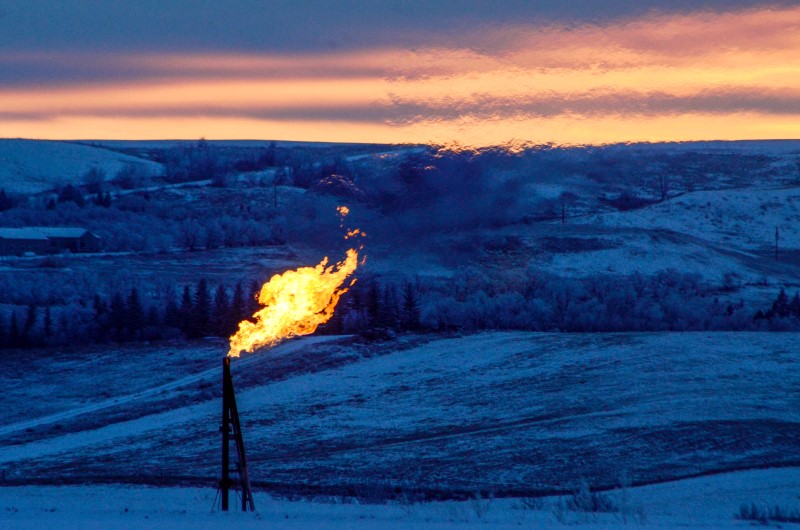Investing.com - The bulls in U.S. natural gas can’t seem to break beyond mid-$2 pricing.
Weather forecasts indicating August temperatures may be lower than those of July drove a stake on Thursday into gas longs who had been counting on this month’s superheat to extend into later summer, heightening power burns related to air-conditioning demand.
Also weighing on gas prices was stiffly higher production at above the daily threshold of one billion cubic feet, or bcf, which had been the bane of gas bulls who had relied on this month’s power burns and spike liquefied natural gas, or LNG, demand to push the market into $3 territory.
“Production rebounded +1.2 bcf/d, which is unusually high compared to what has been previously observed for this time of week during the current maintenance season,” Gelber & Associates, a Houston-based energy markets advisory, said in its daily report on natural gas.
“The other bearish factor at play is revisions of forecasts across the Lower 48 [states] that suggest the high summer demand we’ve seen may wind down earlier than previously thought.”
The September gas contract on the New York Mercantile Exchange’s Henry Hub settled Thursday’s session at $2.59 per mmBtu, or million metric British thermal units, down 9.8 cents, or 3.6%, on the day. For the week, the market was down headed for a loss of 3%, adding to the previous week’s 2% decline.
Gas prices have been locked in mid-$2 territory since the start of this year. At one point in late June, gas prices got to around $2.90, marking the loftiest level for a front-month contract on the Henry Hub since March. But the momentum couldn’t last beyond days, leaving prices in the $2.50 to sub-$2.80 range since.
Thursday’s slide came despite the U.S. Energy Information Administration, or EIA, reporting that storage levels for natural gas rose by just 16 bcf last week versus forecasts for a 19-bcf build.
The injection for the week ended Aug. 21 compared with the 41-bcf build during the prior week to Aug. 14.
The 16-bcf increase also compared with the 18-bcf injection seen during the same week a year ago and a five-year (2018-2022) average increase of 31 bcf.
With the latest stock gain, total gas held in inventory across the United States stood at 2.987 tcf, or trillion cubic feet. That was 23.7% above the same week a year ago and about 13.1% above the five-year average.
